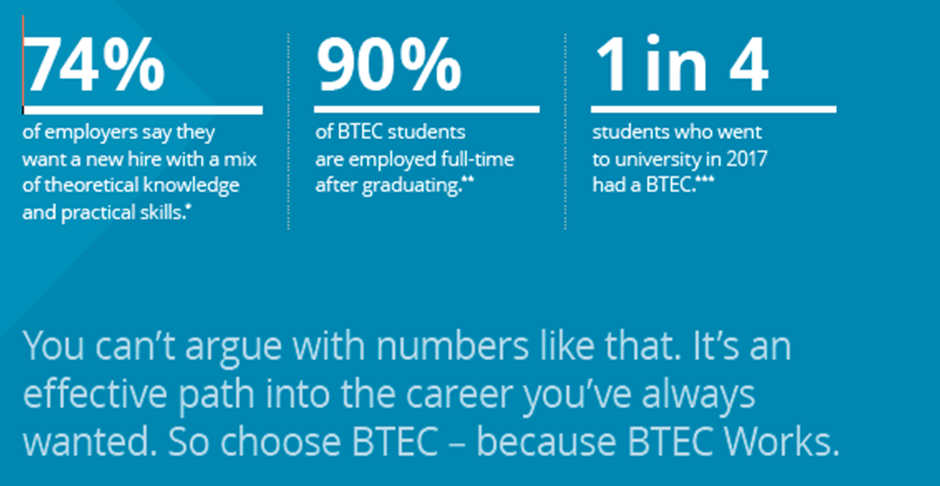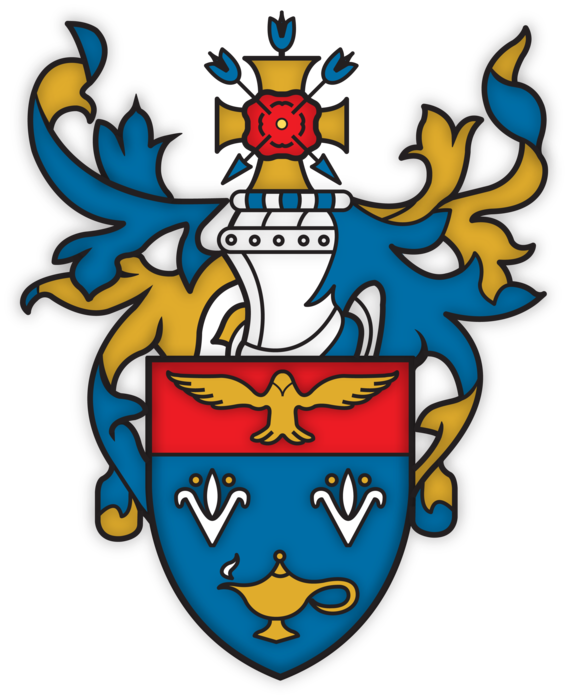Business (Sixth Form only)
Key Stage 5
BTEC Business has been running at Brentwood Ursuline Convent High School since 2016.
The subject continues to attract high numbers year-on-year and was one of the top performing subjects in the summer of 2024. All of our students either progress their studies at university or via an apprenticeship. For the last four years, some of our students have taken up positions at Russell Group Universities.
Exam Board and Syllabus
Edexcel National Diploma in Business
Programme of Study/Assessment
- Equivalent to 2 A Levels.
- 8 units, of which 6 are mandatory and 2 are chosen by the teachers.
- 1 external exam.
- 2 units are controlled assessment.
- Internal assessment (63%).
- External assessment (47%).
Unit guide
Table showing units, topics and assessment types:
|
Unit |
Topic |
Assessment |
|
1 |
Investigating business |
Internal assignment |
|
2 |
Developing a marketing campaign |
Controlled assessment |
|
3 |
Personal and business finance |
External exam |
|
4 |
Event management |
Internal assignment |
|
5 |
International business |
Internal assignment |
|
6 |
Principles of management |
Controlled assessment |
|
14 |
Recruitment and Selection |
Internal assignment |
|
21 |
Training and development |
Internal assignment |
Note: Units 1 – 6 are compulsory units at present. The two optional units we study are 8 and 21. However, these are subject to change.
What can it lead to?
BTEC Business can be useful for every job.
Business Studies is particularly relevant if you want to work in:
- Human Resources
- Marketing
- Finance
- Accountancy
- Project manager
- Events management
University pathway
Over 25% of the students entering university in England do so with a BTEC. A vast majority of universities including Russell Group actively welcome students who have chosen the BTEC pathway. This is due to their ability to manage both coursework and external exams.
"BTEC students coming in with vocational skills can really add something extra to university. We’ve seen a real rise in the number of students applying with BTEC qualifications and we’re really pleased to see that they are going to be really successful.” Director of Education, Exeter University
What UCAS points can I achieve?
The points shown below are only for your BTEC qualification. You will also need to add your chosen A Level points to these.
|
Final grade |
Points |
|
D*D* |
112 |
|
D*D |
104 |
|
DD |
96 |
|
DM |
80 |
|
MM |
64 |
|
MP |
48 |
|
PP |
31 |
Interesting facts
A business graduate typically earns £30,000 per annum.
This puts them in the top 8 graduate earners.
90% of BTEC students are employed full time after graduating.
Apprenticeship/Employment pathway
“BTEC students have the skills that today’s employers are looking for”
Peter Jones CBE Entrepreneur (BBC ‘Dragons Den’)
There are many employers and professional bodies who actively seek out BTEC students for an apprenticeship or employment. Some will even support you in studying for a degree alongside your work. This means you can earn a wage and study at the same time.
Some examples are:
- The Peter Jones Foundation
- John Lewis
- Barclays
- Lloyds Bank
- Chartered Management Institute
BTEC Headlines

To find out more about BTEC Business, speak to Miss O’Grady or e-mail fogrady@buchs.co.uk
